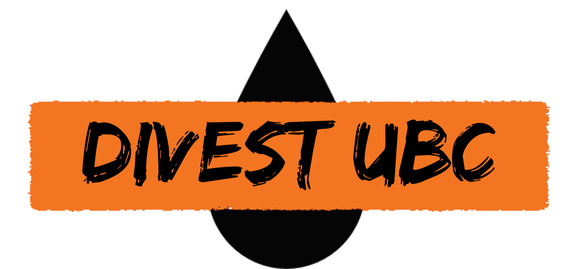You can change the environmental conversation. Chip in to rabble’s donation drive today!
The growing movement to divest from fossil fuel companies took a significant step forward in Vancouver last week, as UBC’s graduate and undergraduate students voted by a strong majority in a campus-wide referendum to urge the university to halt investment in the fossil fuel industry. The ballot commits the student-run Alma Mater Society (AMS) to lobby the UBC administration to divest its $1 billion endowment fund from all fossil fuel holdings.
The UBC referendum was championed by UBCC350, a campus-based organization focused on the environment and climate change, composed of students, faculty, and staff. The group unveiled their “Divest UBC” campaign in November, and students quickly gathered over 1,200 signatures on a petition that triggered the campus-wide vote.
Divest UBC received overwhelming student support in the referendum, with 77 per cent of students voting in favour of divestment, backed by one of the highest voter turnouts in recent years. The issue has also sparked a high level of campus activism and political debate that many feel has been absent at UBC lately.
“This campaign has been sustained by the incredibly hard work of a dedicated group of student activists,” says Molly Henry, UBCC350’s divestment campaign manager and a senior undergraduate student. “Over the last several months we’ve reached approximately 15,000 UBC students face-to-face, and have engaged the student body in a meaningful discussion around sustainability at the university.”
The ecological carbon footprint of UBC’s endowment fund investments is approximately nine times as large as its physical operations, according to a recent estimate. Cohen Hocking, UBCC350’s student coordinator, argues that fossil fuel divestment represents an opportunity for the university to live up to its aspiration to serve as a global leader in sustainability, as well as serve as a model for other institutions.
“We’re alarmed by the climate crisis, and we’re taking responsibility,” says Hocking. “President Stephen Toope has said that the magic of UBC’s endowment fund is that it benefits not just this generation, but all generations. We agree. Using that endowment to invest in an industry that threatens the future of the planet – and the future of those generations to come – is unconscionable and unacceptable.”
Meanwhile, the global divestment movement continues to gather steam. Seventeen major American foundations announced last week that they will divest close to $2 billion in philanthropic funds from fossil fuels. In addition, the president of the World Bank expressed support for divestment at the World Economic Forum in Davos, Switzerland.
Next steps for Divest UBC include bringing the divestment call to UBC’s Board of Governors, and expanding the campaign to include other stakeholders such as faculty and alumni. “We’ve been hearing support from across the UBC community,” says Alex Hemingway, UBCC350 member and doctoral student. “We’re now reaching out to any alumni who want to join us in pressing the UBC administration to deepen its commitment to sustainability. The referendum was step one, but we don’t plan on resting until UBC commits to complete divestment.”
Inspired by the global climate movement fostered by 350.org, UBCC350 is a group of UBC students, faculty, and staff committed to advocating for meaningful government climate action.



